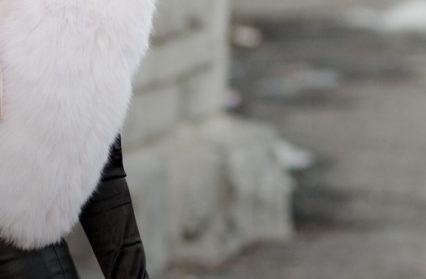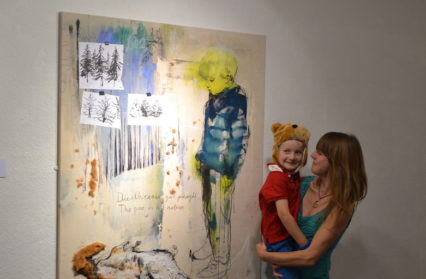Sian Norris presents another contribution, ‘the fur collar‘ as part of her residency for Wales Arts Review‘s new series, Artists in Residence.
This is a chapter taken from a longer work-in-progress that explores the refugee crisis today and throughout history. In this segment, a British journalist has travelled to Eastern Europe in 1938 to report on the political crisis following the Nazi annexation of the Sudetenland. I deliberately don’t name the place in the piece but it does require some context! The incident at the end of the piece is based on a true story that happened in Zimbabwe.
Throughout 2017 these artists, including Siân Norris will take a leading creative role in what Wales Arts Review publishes, centring their skills on a challenging project over the course of a month. We were inundated with applications, receiving hundreds of emails about the positions, and it was no easy task whittling down all that talent to this final eleven. Our team of six editors debated long into the night, and in the end, we decided on a collection of people who we most want to work with, and whose work excites us. We think you will be excited by them too.
The fur collar by Siân Norris

But it’s not noisy at all, thought Caro, stepping out of the car and watching the long column of people trudge past her. They walked, one after the other, in heavy silence. Some carried the few belongings they could hold on their backs. The lucky ones had a cart piled high with furniture and boxes; buckets filled with objects strapped to the sides. Others carried small children, wrapped up like bags, on their shoulders. Even those without anything to carry walked as though they held something on their backs – something invisible and of unbearable weight. Some had murmured conversations in low voices that had become used to being quiet, trained to not be overheard. Most walked in silence.
They’ve lived their whole lives some of them, in the same village, in the same town, Caro thought to herself. Just like my mother, just like my grandmother. Never knowing any different. Never feeling any different from their neighbours. And then one day, the border moves. It’s no longer their home. No longer their country. The people they saw every day on the street look at them with new eyes. First, they shout taunts. Then a window is smashed. A kid’s beaten up.
Then come to the suicides, she thinks. And then…
What do you do in that situation? Caro asked herself. You can’t stay. So you go to the city. The police ask for your papers. They tell you that you can’t hang around here – you’ve got two days to leave and return home. But what home? You can’t go home. So you leave the city and head east, always east, to the next border, and the next, and the next.
She watched the column of people move slowly down the road. Men in soldier uniforms, women in traditional peasant dress, women in smart fur coats and men in farming boots. All of them with the same set mouths. All of them with the same dazed questions in their eyes.
Watching the women and men move past her, Caro found herself suddenly shy. She had wanted to talk to the women fleeing the shifting border. She had wanted to ask them what their lives had looked like before they set out on this silent march; whether they really believed the road could lead to safety, or whether safety was now nothing more than a dream they told themselves and their children – a dream they had to keep alive because to do otherwise was to give up and remain in a country that no longer wanted them.
How could she ask?
Two children walked alone. The oldest was about twelve years old, she estimated, the other quite a bit younger. The girl had a determined smile on her face as she pulled her more truculent brother along with her. Her hair was in messy pigtails that were coming undone. His hair was hidden under a woollen cap. Both pairs of eyes were blank with exhaustion.
Perhaps she could talk to them.
Caro called out to the little boy in his own language, wincing at her heavy schoolgirl accent. He looked up at her in silence. Kneeling to be on his level, she repeated her question.
‘Wie geht’s dir?’ she said. ‘Helfen sie?’
Stupid to ask, she thought, kicking herself. Of course, they needed help.
He reached his hand over to stroke Caro’s fur collar.
‘Soft,’ he said.
Caro smiled at him. ‘Yes, very soft, and warm,’ she said. She thought for a second how cold she would be if she took off her collar, bought in a flurry of extravagance from a furrier on the Faubourg Saint-Honore. It was a moment’s thought. ‘You have it,’ she said. ‘It must be cold, at night.’
The child looked drowned in the fur that wrapped up most of his upper body. ‘Thank you,’ he said.
‘Thank you,’ his sister echoed. She looked at her brother and smiled, a genuine smile this time that lifted some of the tiredness from her eyes. ‘You have to share it with me,’ she said. ‘When I get cold, you’ll share it.’
‘I’m sorry I only have one,’ said Caro.
The little boy looked hard at his shoes for a moment. Biting his lip, he wrestled with whether to say out loud what he wanted to ask. Caro waited patiently, an encouraging smile fixed on her face.
‘Have you got a dog?’ he said finally.
‘What?’ Caro responded, her voice high with surprise.
‘We want a dog,’ the boy repeated. He looked up at her, his lower lip trembling with the terror of asking. ‘We need a dog!’
‘I’m sorry,’ Caro said, appealing to the girl for help. ‘I don’t have a dog. Why do you need a dog?’
‘He’s scared of the rats,’ the girl explained. ‘We thought, maybe, if we had a dog, then the rats would be frightened away. We thought, a dog…’ Her voice trailed off. She looked down at her shoe, scuffing the dirt, and back up to Caro. ‘Do you know anyone who has a dog?’
Caro looked at the girl’s earnest pleading face and thought her heart would break. She’d seen that face before, in another war, in Barcelona, and she knew in that moment that she would see it again, and again; that this scene would be repeated too many times in too many places.
‘I’m sorry,’ she said, her voice helpless. ‘I’m sorry.’
The girl took her brother’s hand. ‘Thank you for the scarf,’ she said, her voice sweet with studied politeness. ‘Say thank you, Rafa.’
‘Thank you,’ he said, his voice muffled under the fur.
‘I’m sorry,’ Caro repeated. ‘I’m sorry.’
‘We’ll be okay, Rafa,’ the girl said to her brother as she led him away by the hand. ‘We’ll find a dog soon. So many people, one will have a dog we can borrow.’
‘My god,’ Caro said, her voice savage with anger as she watched the two tiny figures disappear into the column of men and women who trudged, silent, on and on. ‘They don’t need a dog. It’s not a dog they need, not a dog at all.’
The fur collar by Siân Norris is part of the Artists in Residence series.
The fur collar is originally from a longer work-in-progress that explores the refugee crisis today and throughout history.











